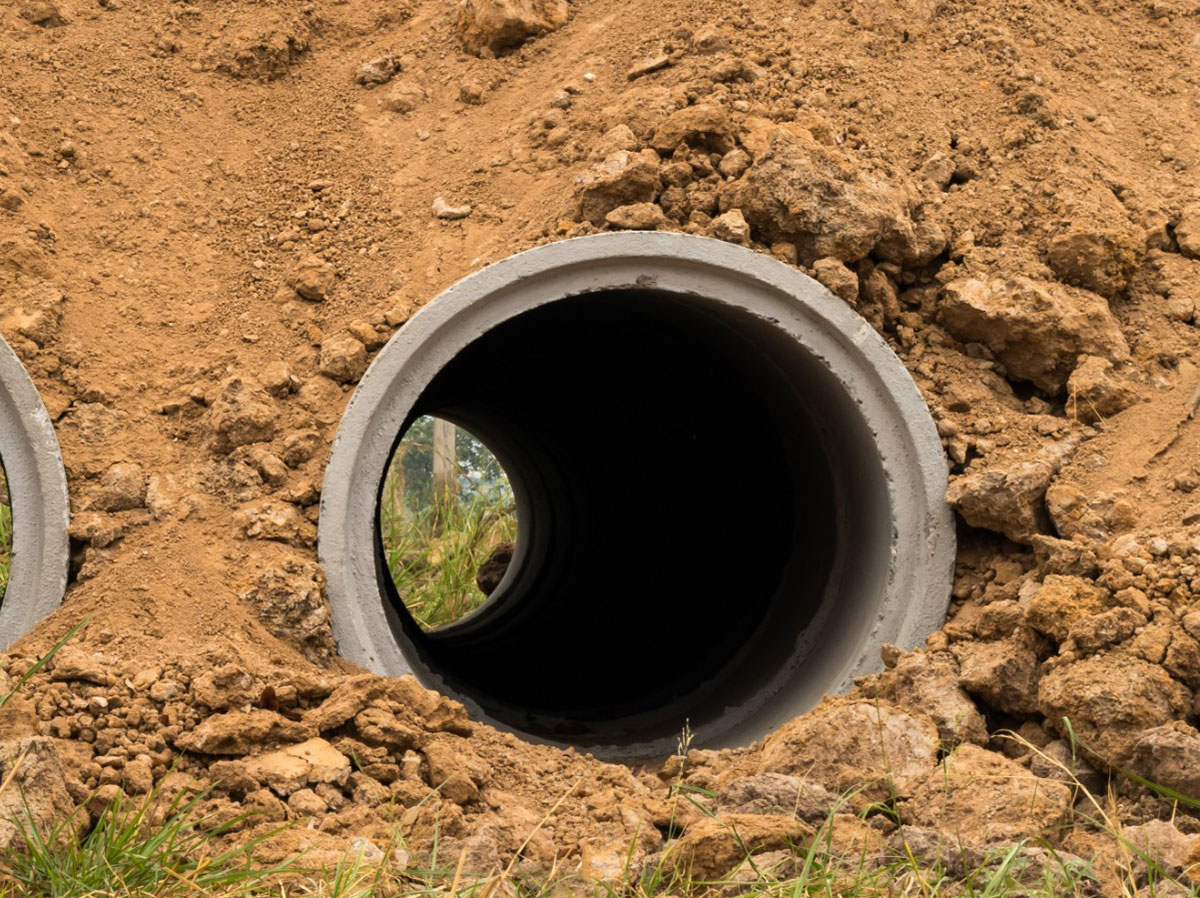Culvert Installation Made Easy: Step-by-Step Guide for Success
Setting up culverts may look like a simple task, however making sure an effective result needs careful planning and execution. From picking the ideal culvert dimension to incorporating appropriate drain measures, each action in the installment process plays a crucial function in the capability and longevity of the culvert system. By complying with a methodical strategy and taking note of key details, the installation can continue smoothly, reducing potential issues down the line. Stay tuned to uncover the important steps and considerations that can make culvert installation a smooth and effective undertaking.
Picking the Right Culvert Dimension
Choosing the suitable culvert dimension is crucial for ensuring reliable water flow and architectural stability in culvert setup jobs - Pad Construction. The dimension of the culvert straight affects the circulation capability of water with the structure. A culvert that is also tiny can cause flooding and overflow, while one that is also huge might result in decreased water velocity, potentially triggering debris build-up and clogs
To figure out the ideal culvert size, elements such as the watershed location, height flow prices, and hydraulic performance need to be very carefully taken into consideration. Calculations based on these criteria assist in selecting a dimension that can effectively deal with the anticipated water quantity while reducing the danger of obstructions and architectural failing.
It is important to seek advice from engineering standards and standards to make sure that the selected culvert size meets the job requirements and regional policies (Pad Construction). By picking the best culvert dimension, job managers can enhance water flow, stop potential issues, and boost the general effectiveness and longevity of the culvert installment
Preparing the Installment Website
Effective culvert setup requires thorough prep work of the setup website to ensure optimum architectural assistance and functionality. Prior to commencing the setup procedure, it is critical to remove the site of any type of particles, vegetation, or blockages that could impede the culvert's placement. Ensuring a degree structure is necessary for the appropriate placement and security of the culvert. This may include grading the site to produce a smooth, also surface that can effectively sustain the weight of the culvert and any type of anticipated tons. Furthermore, correct compaction of the soil beneath the culvert is necessary to stop working out or moving gradually.
Furthermore, it is very important to take into consideration aspects such as dirt composition, groundwater levels, navigate here and ecological influences when preparing the installation site. Performing a detailed site assessment can assist recognize any type of prospective difficulties or threats that may impact the culvert's efficiency. By making the effort to prepare the setup website properly, you can help guarantee an effective culvert setup that fulfills structural needs and guarantees long-lasting performance.
Positioning the Culvert Properly

The grade at which the culvert is positioned is important for keeping a correct incline for water flow. A gradual slope helps stop pooling and advertises reliable drainage. Additionally, the culvert should be oriented properly to make certain that the inlet and electrical outlet remain in the appropriate locations. This orientation is vital for the culvert to operate effectively in managing water circulation.
Backfilling and Condensing the Dirt
Appropriate backfilling and compaction of the dirt around the culvert is necessary to make sure security and prevent possible concerns in the future. As soon as the culvert is appropriately put, the following essential step is to backfill the area around it with ideal product.
Compaction aids in lowering the possibilities of negotiation and guarantees uniform assistance around the culvert. It is essential to portable the soil uniformly on all sides of the culvert to keep its structural honesty.
Proper backfilling and compaction not just give stability to the culvert however likewise assist in avoiding dirt erosion and preserving the company website long life of the culvert system.
Making Certain Proper Water Drainage Integration
Integrating reliable drainage services plays a critical duty in the general functionality and longevity of culvert setups. Correct drainage assimilation is important for handling water flow, stopping erosion, and ensuring the architectural stability of the culvert system. To accomplish this, it is essential to design a detailed water drainage strategy that thinks about aspects such as the quantity of water expected, the topography of the location, and the sort of soil present.

Furthermore, integrating features like erosion control measures, such as riprap or plant life, can better improve the performance of the drain system. By meticulously intending and applying these water drainage solutions, culvert setups can function efficiently and withstand the test of time.
Verdict
Finally, proper culvert installment is crucial for maintaining effective drainage systems. By choosing the ideal culvert size, preparing the installation website, placing the culvert correctly, backfilling and compacting the dirt, and ensuring correct drainage integration, success can be accomplished. Adhering to these actions will certainly help guarantee the long life and efficiency of the culvert, eventually adding to the general success of the water drainage system.